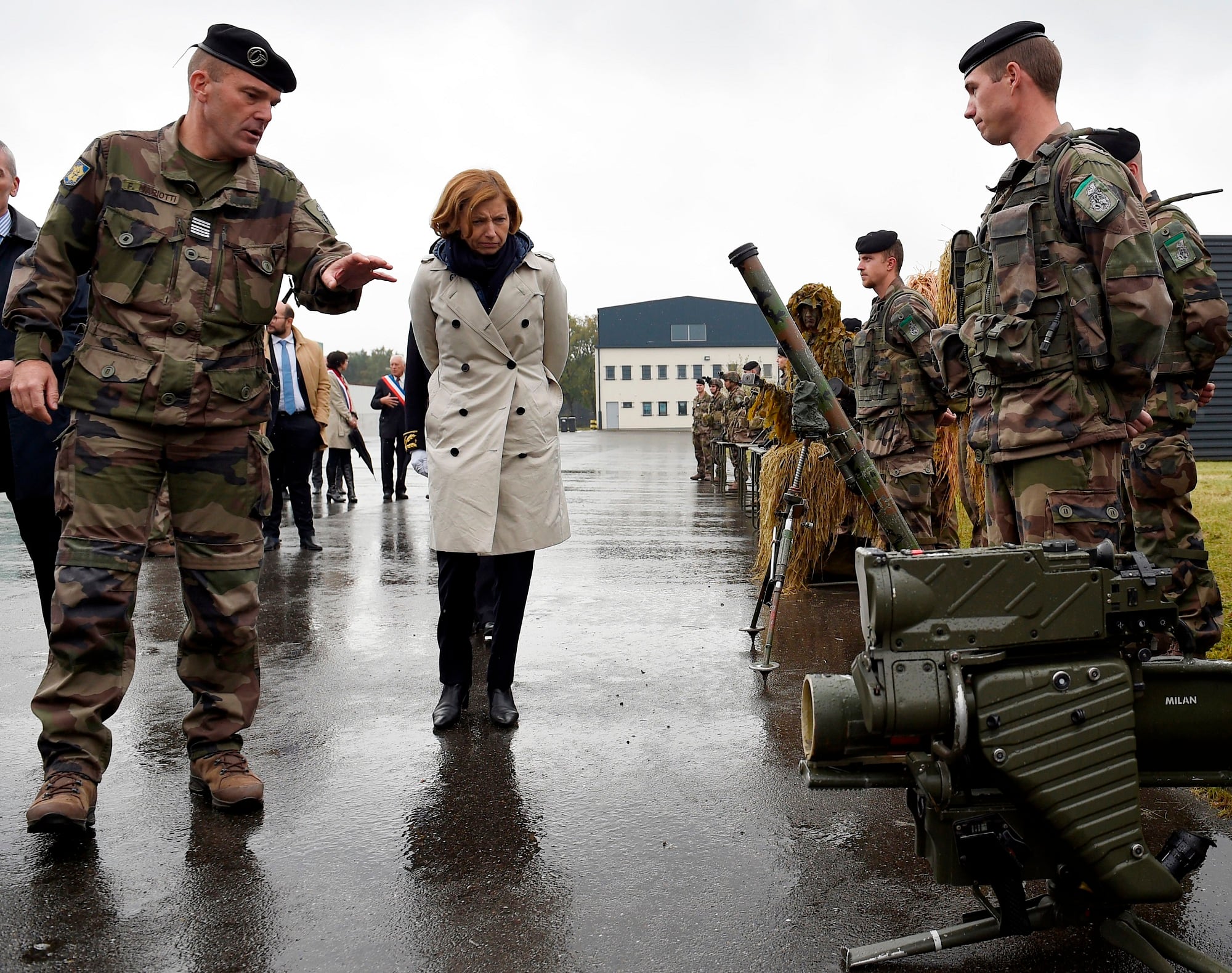PARIS - France seeks to shake up, speed up and closely audit its arms acquisition with a “transformation” of its procurement office, the Direction Générale de l’Armement.
In a July 5 speech, Armed Forces Minister Florence Parly pointed to the need for a deep restructuring of the DGA in response to changing threats, international relations, technology and innovation. AS part of that process, the DGA will spin up an innovation office for key programs, with a budget of €1 billion (US $1.2 billion).
Closer ties with industry will be part of the new approach, with prime contractors sitting down with the DGA and chiefs of staff to draw up a requirement – but industry must also assume responsibility and better share risk, Parly said.
“Transformation of the DGA” was the mission assigned to its director, Joël Barre, when he took up the post, Parly told the audience gathered at the defense ministry. Efficiency and responsiveness were key goals, requiring greater dialog between the DGA and the military services, rather than working in silos, she said.
RELATED

There are now three phases in arms programs, half the previous number, she said. Those key stages are preparation, production and use of the equipment. The ministry seeks to simplify procedure, increase flexibility and acquire innovation, while pursuing new legal structures and financing.
While greater conversations with industry will be vital going forward, Parly pointed up that there would “balance” in the government’s relations with industry. France was ready to talk to industry but the government was not ready to pay any price. There will detailed audits to ensure a right price was agreed to, Parly warned.
“The DGA is not a quartermaster’s store, nor little old grandma with an open check book,” she said.
One of the major reforms for industry will be to pressure prime contractors deliver on time, with the government seeking to move to an approach used in civil aviation, where most of the payment is made on delivery. That encourages a delivery on time, rather than the present phased payment, where defense contractors have no incentive to speed up the work.
The DGA will send teams to inspect the contractors to ensure the right price was paid.
Additionally, Parly said there will be greater sharing and use of engineering information between the DGA and industry, with increased use of artificial intelligence and large databases.
Innovation agency
To help drive the new culture, DGA will set up an innovation agency, intended to be the one number to call for inquiries on innovation, and ready to take risk and speed up official backing. There is a search on for director of the agency, which will merge various existing offices including Astrid, Def’invest and Rapid. The agency will have a budget of €1 billion (US $1.2 billion) for investment.
There will be a greater cooperation between the DGA, Joint chief of staff and Chief of staff of each of the services, with teams working together in the same office area from this autumn. There are two pilot projects being considered: the Future Combat Air Systems, which will also consider the potential for cooperation with Germany and other European countries, and a maritime surveillance system.
RELATED

There is a search for greater speed by merging the operational requirements set by the services with the technical needs drafted by the DGA. The forces and DGA will, with a prime contractor, draw up a single document setting out requirement. This combined approach will be tested on a new internal communications system for the ministry.
The DGA will seek greater flexibility in its staff management as the office relies on technical staff, which are in strong demand in the job market. That includes sending its employees to work temporarily in companies to learn best practice and boost cooperation between the ministry and industry.
The DGA manages an average annual budget of €11 billion for some 100 arms programs, employs 9,600 staff, of which 56 percent are engineers and executives. The office has a major role in managing export deals.
Parly, in her opening remarks, quoted former U.S. President John F. Kennedy in his 1960 acceptance speech of the Democrats’ nomination for the presidential campaign: “We stand today on the edge of a New Frontier--the frontier of the 1960′s--a frontier of unknown opportunities and perils-- a frontier of unfulfilled hopes and threats.”
The DGA was formed just a few months before the presidential candidate delivered his speech at the Democratic National Convention at the Memorial Coliseum, Los Angeles.







